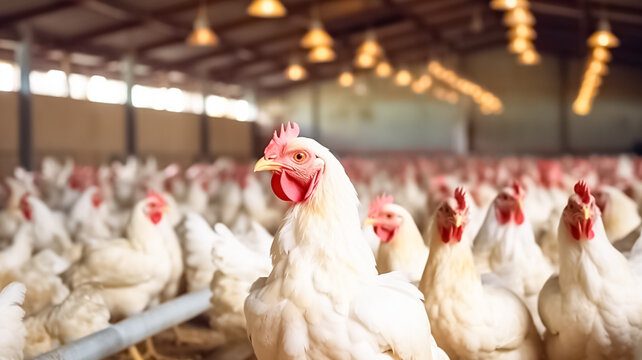For seven years, Ismatu built a thriving poultry enterprise in Northern Nigeria—an operation that not only sustained her family but also financed multiple degrees. But when she moved to the South with her life savings, expecting to replicate that success, everything unraveled.
As told to Aisha Bello
I ran a successful poultry business in the North. It paid school fees, put food on the table, and helped me earn multiple degrees. But when my family and I relocated to the South in 2024 with ₦2 million in savings, I watched it all slip away.
I began poultry farming in 2013 with just 20 broiler birds—originally for family use. At the time, I was working as an operations officer at an environmental agency, earning ₦120,000 per month. It didn’t take long to realize that this side venture had real potential.
In those days, day-old chicks cost around ₦20 to ₦30, and feed was just ₦800 per bag. By the time each bird matured in 6–8 weeks, my cost per bird was about ₦700, and I sold them for ₦1,000 to ₦1,200. The margin was small but consistent—it was my first taste of profitable entrepreneurship.
Still, scaling the business was difficult. My then-husband constantly complained about the mess and smell. Our marriage, already under pressure, became abusive. The breaking point came when he assaulted me so badly I landed in the hospital. That was in 2018. I filed for divorce, moved in with my mother, and took my three children with me.
Not long after, I resigned from my job—burned out and grieving. But what followed was a season of healing and independence.
I invested ₦200,000 to build a large poultry pen behind my mother’s home. By then, prices had climbed: day-old chicks were ₦500 each, and raising a bird to full size cost about ₦8,000. Still, I could sell mature birds for ₦11,000 to ₦13,000 apiece, depending on size and demand.
The pen could house 150 birds per batch, and with careful management, I ran multiple overlapping cycles. Even with occasional losses from disease or weak chicks, I never lost my capital. The real secret was my market knowledge and wholesale strategy—I sold directly to retailers and built solid relationships with bulk buyers. They knew exactly when to come.
On average, I earned ₦500,000 in profit every eight weeks—and up to ₦750,000 during festive seasons. That rhythm sustained me for seven years.
With that income, I raised my children, paid their fees, and advanced my education. I had an HND, but I returned to school for a bachelor’s degree in human resources, then earned a Master’s in Public Administration, a Postgraduate Diploma in Management, and finally an MPhil in Leadership, in preparation for a PhD.
Along the way, I also worked part-time at a private school, earning ₦80,000 monthly. Between the job and the poultry business, life was stable—even without child support from my ex-husband.
Then came the decision that changed everything.
In 2024, my mother retired and wanted to return to our hometown in the South. We relocated together, and I believed my poultry model would thrive anywhere. I had ₦2 million saved and was hopeful.
Once we settled, I spent ₦600,000 building a new pen and ₦100,000 on feeders and drinkers. I stocked 150 birds at ₦1,950 each, totaling ₦300,000. After adding medication and feed, my investment climbed to ₦1.2 million.
But nothing went as expected.
I struggled to find bulk buyers. People only wanted to buy one or two birds—and always at bargain prices. The retail demand was slow and unpredictable. Without large orders, I couldn’t recover costs in time to restock.
I reduced the next batch to 100 birds, hoping for a better outcome. But sales dragged again, and birds that stayed too long kept consuming feed, deepening the losses. My capital was dwindling.
I took a job as an administrative officer at a private school, but they paid just ₦36,000 and assigned me kindergarten duties. I couldn’t survive on that and resigned.
Despite relentless applications for new roles, I was repeatedly told I was overqualified. My degrees had become a stumbling block—employers feared they couldn’t afford me.
In October 2024, I made one final attempt. I invested my last ₦400,000 in 200 birds, betting on the December sales window, which had always been my most profitable period in the North.
At first, it looked promising. Some chickens grew large enough to fetch ₦17,000 to ₦18,000. I hoped to earn over ₦1 million and get back on track.
Then disaster struck.
I lost nearly 50 of the biggest birds. Sales stagnated again. In the North, customers bought birds well into the New Year. Here, interest dried up by late December. I didn’t even sell 100 birds.
The meager earnings barely covered feed costs—and I was out of money.
I gave up.
I kept about 50 chickens for my son’s graduation. Since then, the pen has remained empty.
Now, I live off occasional support from family while applying for new admin roles. If I ever return to business, I’ll do it with deeper market research and better planning. If I return to poultry, it will be with a smarter, more strategic approach.

